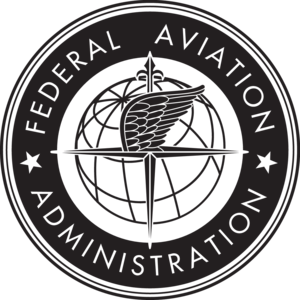Updated 3:18PM EDT – In a stunning defeat for the FAA, a federal appeals court has deemed the FAA’s drone registration program unlawful as it applies to model aircraft. (The ruling does not impact Part 107, or registration for commercial drones.)
The ruling is the result of a case brought by John Taylor, a recreational drone operator and attorney from Maryland vs. FAA Chief Administrator Michael Huerta about the legality of drone registration. In his suit, Taylor claimed that the registration program went against Section 336 of the FAA Modernization and Reform Act, which states that the FAA “may not promulgate any rule or regulation regarding a model aircraft.”
While the FAA responded to this accusation by stating that the registration program was not a new rule but simply a new (online) way of accommodating the established rule requiring aircraft registration, the judges weren’t buying any. During the case, the judges told the FAA attorney that they were “just making stuff up,” and that their legal argument was faulty.
The opinion and accompanying court order released this morning were direct and scathing.
“In short, the 2012 FAA Modernization and Reform Act provides that the FAA ‘may not promulgate any rule or regulation regarding a model aircraft,’ yet the FAA’s 2015 Registration Rule is a ‘rule or regulation regarding a model aircraft,'” states the written opinion. “Statutory interpretation does not get much simpler. The Registration Rule is unlawful as applied to model aircraft.”
The phrase “the Registration Rule is a ‘rule or regulations regarding model aircraft'” is repeated throughout the decision. The judges had little patience for FAA’s claims that the Registration Rule was nothing new. “The FAA’s arguments to the contrary are unpersuasive,” says the opinion. “…the FAA has never previously interpreted that registration requirement to apply to model aircraft…The FAA claims that the Registration Rule is therefore not a new requirement at all, but merely a “decision to cease its exercise of enforcement discretion…We disagree.”
The FAA also argued that the Registration Rule was necessary to comply with the directive to “improve aviation safety.” But the judges dismissed that argument, saying that according to law the statutes as written must be followed without consideration of shifts in policy.
The result of the case was a court order “that Taylor’s petition for review of the Registration Rule be granted and the Registration Rule to the extent it applies to model aircraft be vacated…”
The case may have far reaching implications. Flight instructor, attorney and drone law expert Jonathan Rupprecht helped advise on the case. “There are a number of different aspects to this,” says Rupprecht. “This is very important – it’s a clear decision from a Federal appeals court. It’s like Drone Law 101.”
Lisa Ellman, Partner and Chair of the UAS practice at global law firm Hogan Lovells says that the FAA may need involvement from Congress to keep the registration program in place. “One of the goals of the registration rule was to help provide accountability around unauthorized drone flights and to assist the law enforcement community’s ability to enforce these drone operations. Additionally, the rule would help hobbyists understand the importance of following the rules,” says Ellman. “If this ruling stands, the FAA may need a statutory change from Congress in order to continue to require hobbyists to register their drones and to provide accountability and enforcement of unauthorized operations.”
The FAA’s registration portal was still active as of this writing.
Taylor also asked for review of the “no-fly zone” over Washington, DC, saying that that also constitutes a rule regarding model aircraft: but this was denied on the basis that Taylor had missed the deadline for protest.
The FAA releases the following statement with regard to the verdict:
FAA Statement Regarding US Court of Appeals Decision
WASHINGTON, DC, May 19- We are carefully reviewing the U.S. Court of Appeals decision as it relates to drone registrations. The FAA put registration and operational regulations in place to ensure that drones are operated in a way that is safe and does not pose security and privacy threats. We are in the process of considering our options and response to the decision.

Miriam McNabb is the Editor-in-Chief of DRONELIFE and CEO of JobForDrones, a professional drone services marketplace, and a fascinated observer of the emerging drone industry and the regulatory environment for drones. Miriam has penned over 3,000 articles focused on the commercial drone space and is an international speaker and recognized figure in the industry. Miriam has a degree from the University of Chicago and over 20 years of experience in high tech sales and marketing for new technologies.
For drone industry consulting or writing, Email Miriam.
TWITTER:@spaldingbarker
Subscribe to DroneLife here.








Nice article. Important to note is that Section 336 only applies if operating under the safety guidelines of a community-based organization (i.e. Academy of Model Aeronautics). I imagine all other hobbyists still need to register.
So what will it require a class action suit for all who paid the registration fee to get a refund from the FAA?
Do you really want your $5 back? I think not requiring hobbyists to register will result in more rogue pilots flying unsafely, hence more legislation restricting drone flying. It’s a wait and see. Stay tnes
Actually it’s $25 these days
No on line $5.
…Ya the FAA violated Section 336, not 333…might want to get that fixed in the article!
Good catch, thanks
So, when can we expect reimbursement?